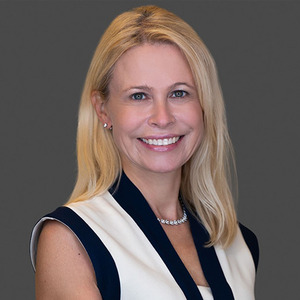
Kendall E. Donaldson
Power List Profile
Professor of Clinical Ophthalmology, Cornea/External Disease/Cataract/Refractive Surgery, Medical Director, Bascom Palmer Eye Institute in Plantation, USA
What is an interesting or little-known fact about you?
When I was nine years old, I won first place in the state piano competition at the Peabody Institute in Baltimore. This happened due to a misunderstanding with my piano teacher. She told me to practice for two hours, but I misunderstood and thought she meant two hours per day when she meant per week. This misunderstanding lasted for several years, until my parents eventually had to speak to her because I was having a hard time finishing my homework due to lengthy daily practice demands. Once I started practicing with a more reasonable routine, my future in music disappeared.
Why did you decide to pursue ophthalmology/your subspecialty?
I started wearing glasses at the age of seven, after my teacher reported to my parents that I was a disturbance in class because I was constantly talking to and copying off my neighbor. My myopia rapidly advanced to -10 D by the age of 10 and led to my wearing RGP contact lenses by the age of 12 after several years of wearing fashionable lined bifocals for a research study on progressive myopia. While experiencing significant bullying thanks to my characteristic bifocals in elementary school, I became more studious and developed a passion for understanding the eye. This led to my winning the 3rd grade science fair with a functional model of the eye. It also led to the beginning of yearly science fair projects, ultimately competing at the international level during high school.
Who is someone in ophthalmology/your subspecialty that you feel has been particularly influential over the past 10 years?
I feel that David Chang and Dick Lindstrom have been two of the most influential individuals in ophthalmology over the past 10 years. David Chang is an internationally recognized expert in cataract surgery for which he has been awarded a multitude of awards, acknowledgements, and named lectures to commemorate his achievements in the field. In addition, he has served as a leader locally, nationally, and internationally in organizations that guide the practice of ophthalmology. He is highly respected for his clinical acumen as well as his integrity and medical judgment and has served as a role model for me as well as most other ophthalmologists in the US and beyond.
Dick Lindstrom has served as a leader in ophthalmology for over 50 years and remains a visionary and is one of the key leaders who shapes the future of ophthalmology. Not only is he a world-renowned cataract and refractive surgeon, he has also worked with industry to advocate for our patients and create tools to help us improve our patients’ experience and outcomes with cataract surgery. He has conceptualized, organized, and led many meetings, publications, and thought groups that help us share ideas and move our field forward to create a better future.
What’s been the biggest breakthrough in ophthalmology / your specific field over the last 10 years?
I feel that the light-adjustable lens has been one of the biggest recent breakthroughs in the field of cataract surgery. The ability to modify post-operative outcomes has been a dream of ophthalmologists and ophthalmic researchers for decades – and many individuals and companies have been working tirelessly to move this dream forward. This advance will hopefully open the door for other mechanisms and devices that will allow us the ability to modify our post-operative cataract surgery outcomes.
What would you like to see change in ophthalmology/your subspecialty over the next 10 years – and why?
I would like to see financial penalties lifted to allow bilateral same day surgery to become more accepted as a primary treatment option.
What is your prediction for where ophthalmology/your subspecialty will be 10 years from now?
I believe that immediately sequential bilateral same day surgery will be much more accepted and most cataract surgery will be performed in the office. I also believe that we will no longer use IV sedation routinely for cataract surgery and post-operative adjustment of lens power will become the norm.
